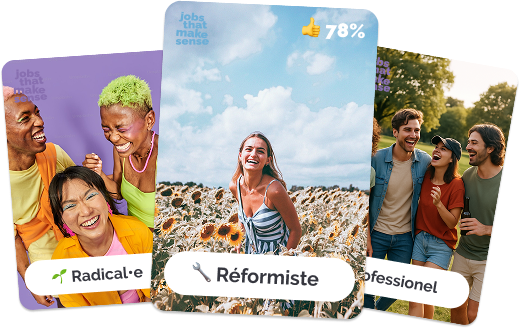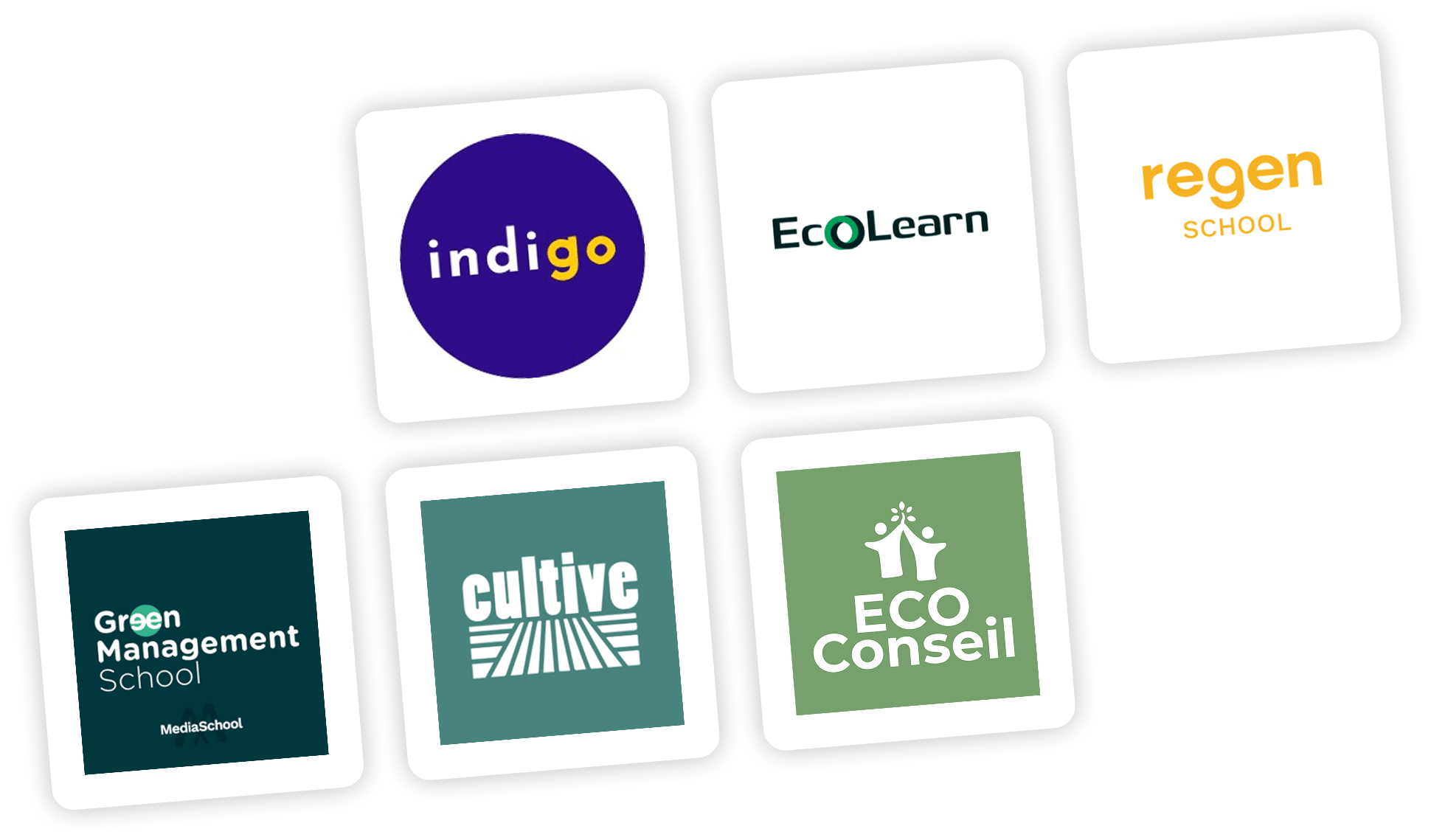Seeking IKIGAI
Lack of motivation, burn out, unhappiness at work... Do you sometimes feel more like you're enduring your working day than enjoying it? Is getting up in the morning difficult at the moment, and is your mental health not at its best? Are you thinking of changing careers, changing jobs or changing sectors? How can you express your talents in your job? Maybe it's time to sit down and identify the reason(s) for your unhappiness and find a job that makes sense for you. That's a pretty broad question, and one that's not always easy to identify. So, to help you get to know yourself better, here's a tool often used during career assessments: the Ikigaï, invented by the Japanese! We'll explain how to use it to get the most out of yourself, what drives you, what motivates you and where you fit in.
The Ikigai method: definition
Ikigai is a Japanese philosophy of life from the island of Okinawa, which focuses on the present moment in order to be happy: finding your Ikigai means finding meaning in everything you do, and gaining a better understanding of yourself. This philosophy has been transcribed into a method for understanding how each and every one of us can direct our lives towards greater fulfillment, and experience a state of happiness and well-being on a daily basis. There are a number of books available to explain this concept, which is often used to :
- career guidance
- in skills assessment and retraining programs
- Work on your leadership skills
- By psychologists to prevent psychosocial risks and improve quality of life at work.

Ikigai is often represented in this way: 4 intersecting circles. How do you make your Ikigai? For each of the 4 components, the idea is to ask yourself a few questions to identify what contributes to your fulfillment. You can take a pen and paper to answer them. You will then the link between these 4 areas. This is your moment of introspection, and you're going to take it step by step:
1. What you like
Knowing what your talents are, what you enjoy doing, brings your personality traits to light. Answer the following questions as spontaneously as possible:
- In your current professional life, do you enjoy what you do?
- When you feel like getting up in the morning to go to work, what motivates you in those moments?
- What activities do you like to do at work?
- What activities make you happy at work?
- What are you doing when you're so absorbed in what you're doing that you can't see the time go by? It could be at work, or on your own time.
- If you have a new professional project, why do you want to join this field / do this job?
- And outside of work, how do you express your talents?
- What activities do you enjoy doing in your spare time?
You can also draw on your experiences in your professional career or in your free time to ask yourself these questions, and even go back to what made you happy as a child;
Here's an example for me: When I'm writing this article on Ikigaï, I spend 1h/2h exploring the resources that exist on the subject to pick out what I think is most relevant to this article. I love doing this research and exploration. I'm also more efficient in the morning for this kind of research. So I adapt my schedule to the way I like to accomplish my different tasks.
A counter-example: When I spent days working on prospecting files when I was a sales rep, I wasn't making the most of my talents. I spent too much time concentrating on this task, whereas what I love is building relationships.
2. What you're good at
Feeling useful is also a factor of fulfillment and commitment at work. The second circle of the Ikigaï character test aims to identify your strong points, your talents, what you could put forward to a recruiter during an interview. Here's a series of questions to help you identify your qualities:
- When do you get positive feedback at work or from people around you?
- What services do you provide?
- What do you do easily that is harder for others to do? Even if comparing yourself isn't always the best option, it can be interesting to do so here.
An example for me: On a day-to-day basis, I find it easy to meet new people. I enjoy interviewing new people, and at the same time I find it easier to do so than others.
=To identify your preferences and what you're good at, this article on the MBTI might interest you.
3. What the world needs
The meaning of work also contributes to job satisfaction. It's different for everyone, and depends on our personality traits and values. The vision of what the world needs is therefore not the same for everyone. The third circle of the Ikigai aims to list the needs of the world that are closest to your heart. Here's a question that reflects people's personalities and appeals to their emotions. It can also help you come up with new career ideas more in line with your personal traits, values and talents.
- What has been important for you in your career?
- What are the current issues that affect you?
- How do you feel about them emotionally?
- How can you integrate what the world needs into your work environment?
- In the context of a professional reorientation, what professions and structures do you see as meeting these needs?
About me: I write for jobs_that_makesense about career guidance and impact at work. Many people want to give more meaning to their work by moving towards the world of impact, and are looking for information to define or build a professional project.
On jobs_that_makesense, you can also identify the cause close to your heart, by scrolling down to the "For what impact?" feature on the job search bar!
4. What you can get paid for
Finally, the last circle of the diagram is oriented towards the reality principle: even if you're a pony fan, you may not be able to earn money in this field. So the last step is to list your technical and behavioral skills for which you can earn money. Here are a few questions to help you identify them:
- Can you make money doing what you love to do?
- How much money do you need to live the way you want?
- What skills and talents in your career can you make the most of? The idea here is to be as exhaustive as possible, since it's likely that you'll be using skills acquired in a completely different context as part of a career change.
For example: you've worked as a project manager in a bank. Your skills can probably be transposed to an association or impact company.
Like the other components, the latter must not be the only one to be favored, otherwise there's no balance.
Synthesize to identify your life mission
Finding your Ikigaï means understanding your personal equilibrium through these 4 circles to define a coherent professional project. Once you have the 4 lists corresponding to the 4 components, the idea is to find the common point(s), the link between the 4 circles: this is your Ikigaï, in other words the job that really corresponds to you, your life mission.
A few tips for making your Ikigai
- Ikigaï is presented as a method to help you get to know yourself better and find your professional vocation. The answers are not to be taken literally. If you take online tests, particularly questionnaires, keep a distance from the answers they give you. Self-knowledge takes time, and Ikigaï, like other tools, should be taken as a helping hand to support you in your personal development and guide you towards the job or field that suits you. In the end, it's all about taking the time to reflect on yourself that will enable you to move forward.
- Don't be in too much of a hurry to find results. If you don't find answers right away, go back to the drawing board and do regular check-ups at the end of the day. :)
- Finding your career path and talents today, using the Ikigaï method, doesn't mean you've found a path for life. It's an exercise you can repeat regularly, because you change and so do your needs.
For further
👉 Le petit livre de l’Ikigaï from Ken Mogi
👉 Follow an Ikigai session with Edeni
👉16 steps for your professional transition
👉 Make your resume for a professional retraining
Take action
👉 Training in the professions of ecological and social transition



